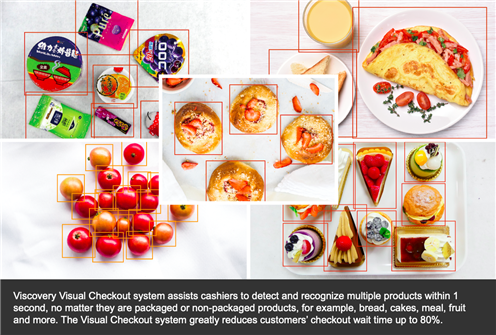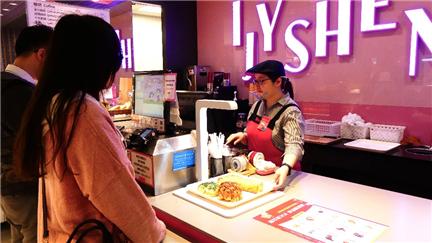The retail industry is facing minimum wage increases and labor shortages
According to statistics from the International Labour Organization (ILO) in 2015, 92% of the 186 member states, or 171 countries, set up their own minimum wage system. In Europe, 22 of the 28 members of the European Union also implemented their legal minimum wage standard in 2019. To this end, many countries around the world have raised minimum wages over the years. Based on the findings, the United States and South Korea both had more than 35% increase in minimum wages from 2014 to 2018; China, Brazil, and Poland had an increase rate of about 20% to 23%. Even countries such as Luxembourg, the Netherlands, Belgium, Germany, France, and Japan that already have the world’s highest average salaries also had 3% to 5% increase.
Meanwhile, the labor market is tightening, indicating an imbalance in supply and demand. Nowadays, it is getting harder for employees to find blue-collar workers. In the retail industry, for instance, young people are reluctant to work as cashiers due to erratic work schedules and repetitive workloads.
Automation technology offers employees higher flexibility in manpower utilization
In response to minimum wage increases and labor shortages around the globe, retailers have successively adopted digital technology. The Bureau of Labor Statistics (BLS) of the United States projected in September 2019 that population aging will have a great impact on the labor markets across industries over the 2018–2028 decade. Among them, the number of job vacancies in the retail industry will reduce by 0.1% every year owing to the booming e-commerce and the maturity of automation technology. It has been estimated that as many as 150,000 jobs in the retail industry will disappear within ten years.
According to the Market Intelligence & Consulting Institute (MIC), a government think tank and IT research institute in Taiwan, the adoption of AI-enabled visual checkout systems using computer vision and machine learning technologies for innovative applications in retail is anticipated to grow faster than those using traditional barcode and RFID scanning technologies. AI-enabled visual checkout not only can digitally record the consumption and ensure smooth payment but also can provide value-added services with integrated data analysis. Thus far, Amazon, Standard Cognition, Trigo Vision, AiFi, Sensei, Zippin, and Grabango have unveiled their own AI checkout solutions that come with AI lenses to be installed on the ceiling and/or the shelf of stores.
Taking the variations in store designs and the overall implementation cost into account, "AI Point-of-Sales (POS) terminal" and "AI shopping cart" are two key areas of focus for retailers, according to MIC. They not only can help reduce the complexity of recognition process but also greatly narrow down the scope of monitoring from the entire store to small blocks to reduce deployment costs. Diebold Nixdorf, Mashgin, and Tiliter are major suppliers of AI-enabled POS terminals while AI-powered shopping carts are mainly provided by Amazon, Caper, and Imagr.
The Taiwan government leads new tech startups to develop smart retail to address retailers’ pain points
As the government agency responsible for the development of smart cities in Taiwan, the Industrial Development Bureau (IDB) of the Ministry of Economic Affairs (MoEA) has assisted Viscovery, a Computer Vision AI startup, in developing the AI-enabled visual checkout system, called “Vision AI Checkout”, to solve the problems in retail like reducing queuing time and training costs.
Viscovery has cooperated with Taiwanese POS terminal manufacturers such as Posiflex and Firich Enterprises and industrial PC (IPC) manufacturers such as Advantech and Axiomtek to launch a total solution. The Vision AI Checkout can be easily integrated into any point of point-of-sale (POS) or self-check system with an application program interface (API). Instead of hiring a cashier, the AI-enabled visual checkout system is able to detect and recognize baked goods such as bread, cakes, and pastries with the accuracy rate as high as 98%. Moreover, it can recognize multiple items, quantities, and prices altogether without having to manually scan the barcode of individual items. Combined with edge computing technology, the system can facilitate self-checkouts and help cashiers to reduce checkout time by more than 50% (from 60 secs to 1 sec), and ultimately enhance operational efficiency and in-store customer experience.

AI-enabled vision checkout system can collect the sales data of goods for further advancement of value-added applications. In the future, it will also strengthen the recognition ability by combining weight-sensing technology for fresh fruits and vegetables. With proven records of accomplishment, Taiwan’s bakery IJySheng and several bakery businesses have adopted Viscovery’s " Vision AI Checkout". For instance, 85°C Bakery Cafe has adopted such system in its chain stores in the United States.

With the support of the Smart City Development Project of the IDB of the MoEA, more than 300 companies currently in Taiwan, including 70 startups, have separately invested in eight key areas including smart retail, health, energy, agriculture, tourism, governance, transportation, and education. Taiwan has been committed to using emerging technologies to solve people's daily life problems, promote industrial upgrading, and improve the efficiency of urban governance. The IDB is poised as a bridge between emerging technology solution providers and city authorities, pointing to the increasing importance of these solutions in matching city needs.
For future receipt of press releases, please subscribe here.
To know more about MIC research findings, please access our website.
For future inquiry, please contact MIC Public Relations.
About MIC
Market Intelligence & Consulting Institute (MIC), based in Taipei, Taiwan, was founded in 1987. MIC is Taiwan's premier IT industry research and consulting firm providing intelligence, in-depth analysis, and strategic consulting services on global IT product and technology trends, focusing on markets and industries in Asia-Pacific. MIC is part of the Institute for Information Industry.